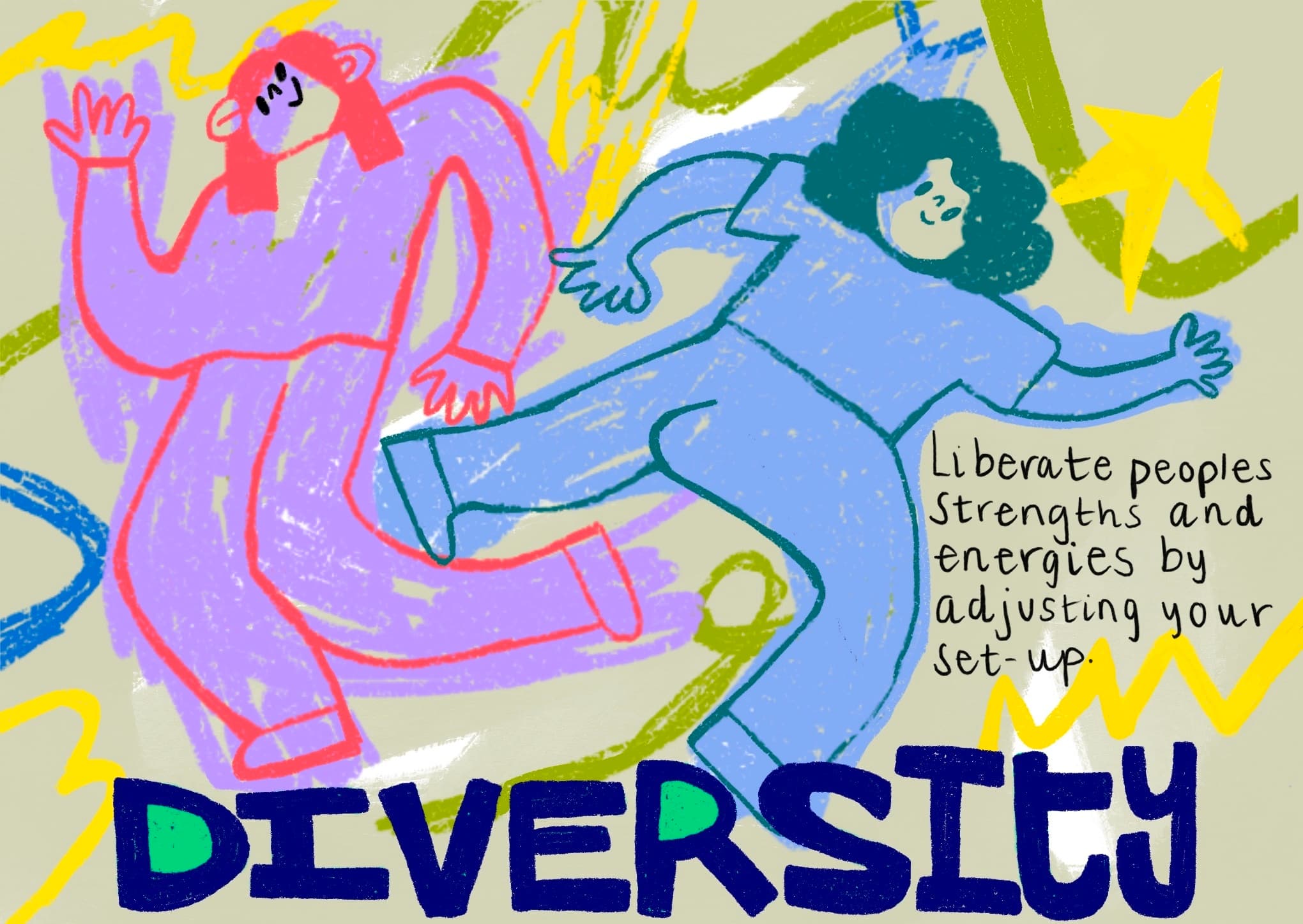Liberate people’s Strengths and Energies By Adjusting Your Set-Up
A flexible start or finish time, a quiet space, a shorter meeting, or more direct instructions, could enable people with different needs to do their very best work.

If you would like a printed version of the entire series when its published, then please contact us on hello@workwiseforscreen.org.uk
The need for reasonable adjustments
Making reasonable adjustments is essential for screen sector businesses of every size – not just to comply with the Equality Act 2010, but to build inclusive and high-performing workplaces. With 24% of the working-age population identifying as disabled, these adjustments play a crucial role in ensuring fair access and meaningful participation, particularly for disabled and neurodivergent staff, as well as those with physical or mental health conditions. Apart from being a legal requirement, they represent a strategic advantage – empowering diverse talent to flourish and contribute fully.
The Equality Act 2010 mandates that employers make reasonable adjustments to remove barriers and prevent disadvantage, which is especially critical in dynamic, high-pressure environments like the screen industries.
Reasonable adjustments are essential in the screen industries to ensure that disabled professionals - including those with physical, sensory, and mental health conditions - can fully participate in creative and production roles.
In a sector built on storytelling and representation, embedding reasonable adjustments is both a legal duty and a creative imperative.
Defining reasonable adjustments
According to ACAS (Advisory, Conciliation and Arbitration Service) and EHRC (Equality and Human Rights Commission), reasonable adjustments are changes that remove or reduce disadvantages linked to a person’s disability. These can include:
Changing work arrangements (e.g. flexible hours, remote work)
Providing equipment or support (e.g. assistive tech, interpreters)
Altering communication formats (e.g. accessible documents, visual aids)
Modifying physical environments (e.g. lighting, seating, access routes)
These adjustments should be tailored to the individual and are legally required under the Equality Act 2010 when the person is hired to personally do the work – even if they are freelance.
Wider application
Fostering a workplace culture where reasonable adjustments are standard practice benefits everyone – not just those with disabilities or health conditions. When each member of staff is recognised as an individual, open conversations about preferred working styles and helpful adaptations can lead to greater effectiveness and satisfaction across the board. For example, while the following strategies are particularly supportive for neurodivergent staff, they can also enhance productivity and wellbeing for the wider workforce:
Clear, structured briefs and deadlines
Flexible communication styles (e.g. written over verbal, or vice versa)
Recognition of strengths – focus on talent, not limitations
Tips for implementing reasonable adjustments
Make adjustments proactively and collaboratively.
Make your recruitment process more accessible.
Ask (everyone) about access needs as early in their engagement as possible.
Be open to introducing new reasonable adjustments.
Celebrate reasonable adjustments that support staff to perform at their best.
Treat freelancers with the same duty of care as employees.
Some workers may be eligible for Access to Work grants.
See also our related blog on equality hiring.
This article is written by Astrid Allen, Research Fellow, Institute for Employment Studies
The Institute for Employment Studies (IES) is an independent, apolitical, international centre of research and consultancy in public employment policy and HR management. It works closely with employers in all sectors, government departments, agencies, professional bodies and associations. IES is a focus of knowledge and practical experience in employment and training policy, the operation of labour markets, and HR planning and development. IES is a not-for-profit organisation.